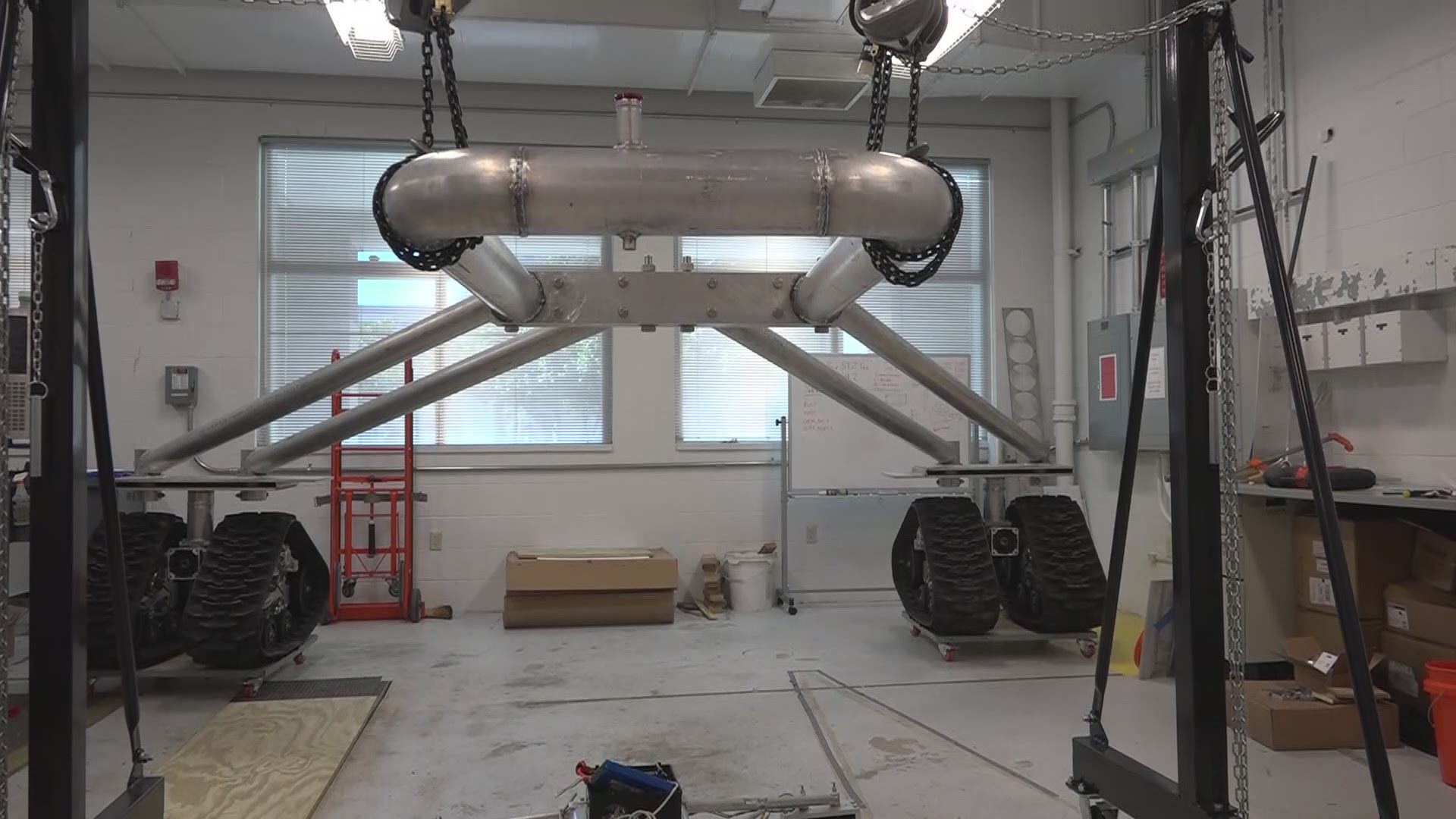The College of Engineering at The University of North Florida is changing the way scientists collect data on the beach. Dr. William Dally is in the process of constructing a 3,000 pound surf rover. Once completed it will be used to to safely collect data during storms in the surf zones, the area where land and sea meet.
"This will change the way to survey the beach and the surf zone," Dr. Dally said. "It will change the way we collect current data like the longshore current and the undertow. You can also study rip currents without endangering people or swimmers."
Dally added that many have tried to design a similar machine in the past but have failed. The rover is built to operate remotely underwater and its diesel fueled engine will have the ability to power through some of the beaches toughest terrains including soft sand, steep slopes high waves and rip currents.
"The only other amphibious vehicles available are huge tetrahedrons that the Army Corps of Engineers and the dredging companies have and they can't be moved easily," Dally said.
The idea for a surf rover was birthed roughly 30 years ago while Dally was in college.
"When I was in graduate school many years ago, I had to go measure a beach profile and as I was wading out into the surf zone I was getting clobbered with one wave after another."
With the help of a prestigious grant from the National Science Foundation, Dally has finally received an opportunity to bring his idea to life. For the past three years he and more than 80 students have played a role in constructing the machine.
"Most of what engineers do people think its just on paper designing something," Graduate student, Patrick Cooper said. "But, this is really a unique opportunity to build a scale model and then a full size and then it gives you a sense of how important engineering can be and how impactful it can be to the community at large," Cooper said.
Dally has already built a quarter scale model of the rover that is currently being used to test the steering.
The rover is expected to be completed and ready for testing under water in a about a year.
"If we can really make this thing work it will actually open up the science of coastal engineering," Dally said.

